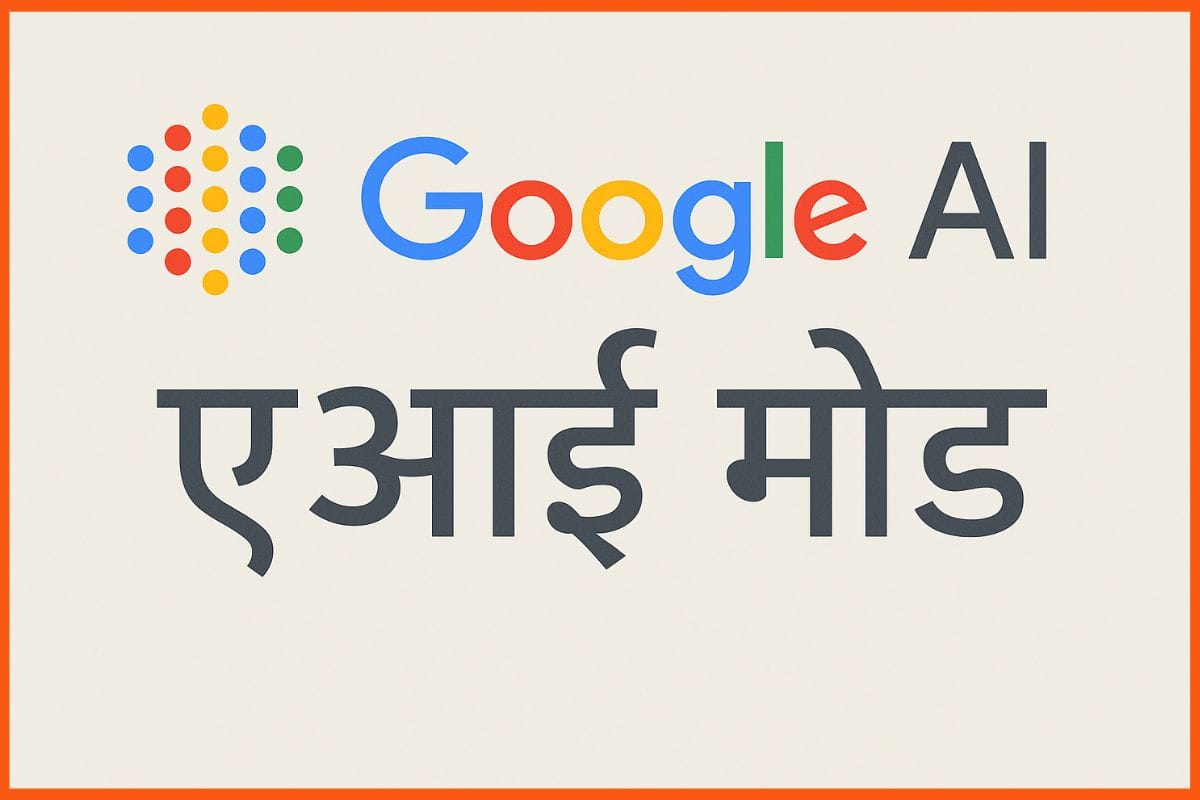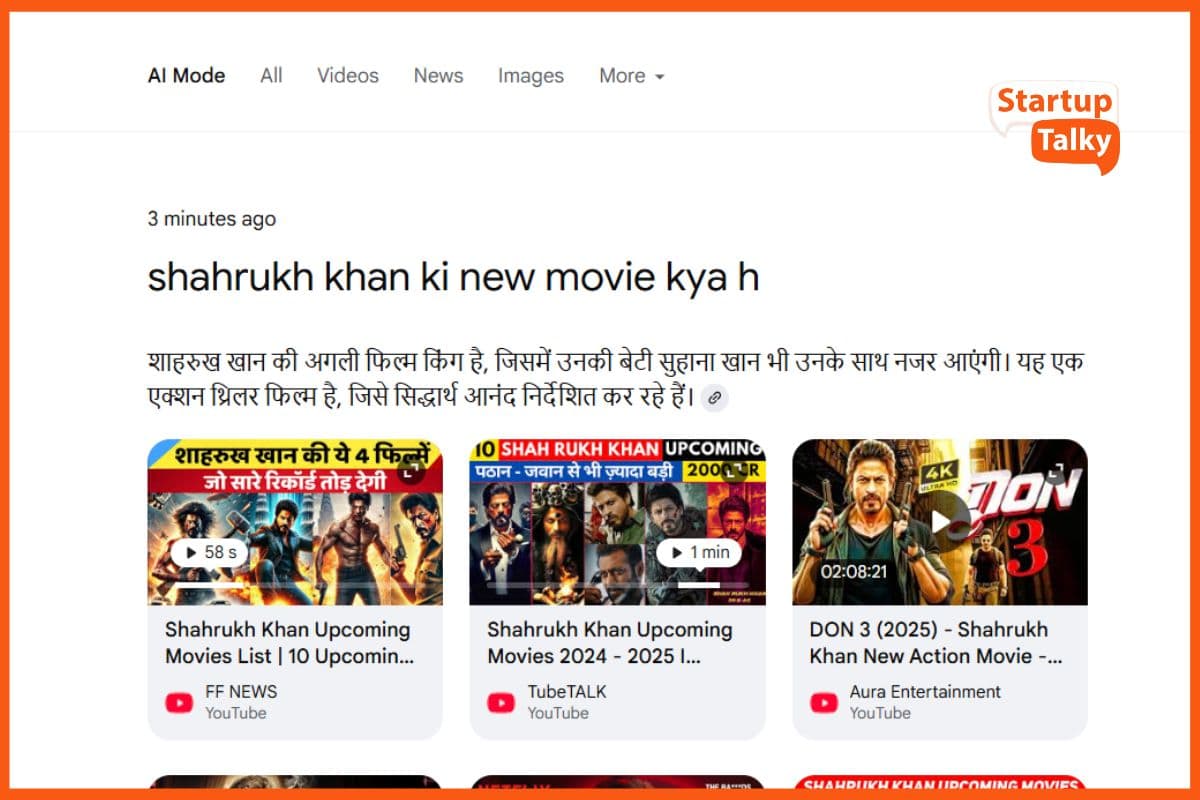
Technology is now in everyone's hands: kids, young adults, and the elderly, too. Emphasising the elderly, they often prefer reading in their native language for emotional connection, cultural identity, and better understanding. And how often do you hear your parents talk to Google or YouTube (audio search) for recipes or tips in your language?
Most likely, and wouldn’t it be helpful to get responses in the same language as well? Of course, it would. Hindi is a widely spoken language in India (according to the 2011 Census of India, about 43.63% of the Indian population speaks Hindi). For that matter, and because of the buzz around AI, Google is now expanding its AI mode in search to include Hindi. How does that work? Will you have to change any settings? Well, learn.
What Is Google’s AI Mode in Search?
When you search for something on Google, you'll find the "AI Mode" on the very top left. The AI mode will give you the gist of the concept that you are looking for (in a very personalized way). So, you don't have to go through all the links in the search to know what it is. Google introduced this feature in March 2024, but only in English. This feature was an experimental one just to compete with big AI platforms like ChatGPT Search and Perplexity AI. And now, with this new advancement, you can search for anything in Hindi on the AI Mode.
Expansion to Hindi & More Languages
Well, this update is powered by Google’s Gemini 2.5 model. And Google is primarily expanding it in five new languages, including:
- Hindi
- Indonesian
- Japanese
- Korean
- Brazilian Portuguese.
How Is It Different From a Normal Search?
Normal Search →
- You'll have to type a query (and the query should be short to get the most relevant answer).
- Then you'll get a big list of links.
- Go manually through the links (click multiple times to find your answer).
AI Mode →
- You can ask any question as long as you want (complex and detailed questions).
- Now, the question runs through AI. It understands all the layers of your question.
- It breaks it down to be simple for you.
- Give you the most relevant, personalised answer in one go.
- And the best part, you can interact with AI in any mode you want, let's say typing, speaking, or even uploading a picture.
Example: List Shah Rukh Khan’s new movies, their release dates, and where I can watch them, and OTT platforms they might stream on. Do You Have To Change The Settings? No, you just need to naturally type (or speak) in your query in Romanized Hindi or actually Hindi. And you’ll get the search in Hindi.

Why Is This Important for Hindi Speakers?
One might think that it is easy to use translation or change the Google language settings to Hindi. However, they are merely word-for-word translations and lack cultural understanding or naturalness. With this new feature, Google has worked on local culture, knowledge, and context as well.
In short, the AI is becoming 'Desi.'
More New Google AI Capabilities (Rolling Out Slowly)
Just last month, Google added an agentic feature, allowing the AI to take actions on your behalf. What kind? Let's say:
- Making restaurant reservations
- And coming soon: booking local service appointments and event tickets.
However, these features at the moment are only available for Google AI Ultra subscribers in the U.S.
What Is Google Saying About Hindi AI Mode?
Hema Budhraju, VP of Product Management for Search, said, “AI is transforming Search to make it more useful and easier than ever to ask Google anything. We're excited to bring AI mode to Hindi and look forward to seeing how people use it.”
Original Article
(Disclaimer – This post is auto-fetched from publicly available RSS feeds. Original source: Startuptalky. All rights belong to the respective publisher.)